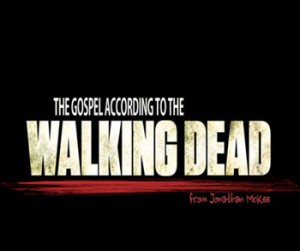1.
Lance Armstrong once believed that since he didn’t have any big-time character flaws, then after he died he could stand boldly before the throne of an all-righteous and almighty God, (if there indeed was a God), and all would be okay between Lance and God.
So, according to Lance, what mattered most in God’s eyes …
was that Lance was a good guy.
Hmm.
Let’s sift through that worldview a bit, and let’s do it in a format that’s longer than most of my regular blog posts, because I think a lot of people are struggling with similar aspects of this, although it’s articulated different ways, so I want to give it fair, closer treatment.
Here’s how Lance Armstrong once described his religion. At least, this is what he thought was most important 12 years ago when he wrote his memoir:
The night before brain surgery, I thought about death.
I searched out my larger values, and I asked myself, if I was going to die, did I want to do it fighting and clawing or in peaceful surrender? What sort of character did I hope to show? Was I content with myself and what I had done with my life so far?
I decided that I was essentially a good person, although I could have been better—but at the same time I understood that the cancer didn’t care.
I asked myself what I believed. I had never prayed a lot. I hoped hard, I wished hard, but I didn’t pray. I had developed a certain distrust of organized religion growing up, but I felt I had the capacity to be a spiritual person, and to hold some fervent beliefs.
Quite simply, I believed I had a responsibility to be a good person, and that meant fair, honest, hardworking, and honorable.
If I did that, if I was good to my family, true to my friends, if I gave back to my community or to some cause, if I wasn’t a liar, a cheat, or a thief, then I believed that should be enough.
At the end of the day, if there was indeed some Body or presence standing there to judge me, I hoped I would be judged on whether I had lived a true life, not on whether I believed in a certain book, or whether I’d been baptized.
If there was indeed a God at the end of my days, I hoped he didn’t say, “But you were never a Christian, so you’re going the other way from heaven.”
If so, I was going to reply, “You know what? You’re right. Fine.”
[Source: It’s Not About the Bike, by Lance Armstrong, Putnam, 2000. pp. 116-117]
2.
Maybe you hold to a similar worldview.
It’s easy to do. We figure that if we’re good to our families, true to our friends, if we give back to our communities or to some cause, if we aren’t liars, cheats, or thieves, then that should be enough.
Lance Armstrong’s belief system has a name—moralism—and it’s a popular belief system the world over. But the problem with moralism emerges whenever we’re honest with ourselves. As we pull back the layers of our lives, we see we’re not as flawless as we think we are.
We all just witnessed a clear breakdown of moralism with Lance. Sure, Lance was an incredible bicyclist, steroids or not. Sure, he beat cancer, and that was inspirational. Sure, he began a foundation that’s raised millions of dollars for cancer research, and much good has been done there.
But Lance’s recent confession to Oprah—from Lance’s very own lips—could be summarized as straightforwardly as this:
Hi, I’m Lance Armstrong.
And actually I am a liar and a cheat and a thief.
What now, Lance? If it was the night before your brain surgery and you were thinking about death again, how would you categorize your belief system?
Is everything still okay between you and God?
If we’re tempted to condemn Lance for his shortcomings, hold on, because here’s a story that throws me in the same category. Pretty much, anyway. One story among many:
3.
Years ago I worked as the student manager for a university catering company. Sometimes when they were shorthanded, I got pulled over to the lunch line where I made sandwiches. It was humbling work, and I didn’t like it much, but it paid the bills.
One day, lines were long. Students waited, tapping their feet. I was running full tilt, working as fast as I could. The bread and the mayo were getting slapped around with a fury. Lettuce and processed chicken flew through the air.
That busy day I noticed one unripe, green, and ugly tomato slice lurking in the stack. It needed to go. I should have just chucked that tomato slice. I should have shoved it to the side of the tray and let it lie. But I just couldn’t. Try as I might, I couldn’t throw that ugly tomato away.
Maybe I was thinking about conservation, how it’s deeply rooted in my Scottish ancestry not to throw away food. If I were to lie to you, maybe that’s how I’d explain things. Most likely, I was just feeling downgraded and wanted to dump that feeling onto someone lower on the totem pole.
Anyway, I picked the nerdiest college sophomore I could find in the lunch line, a kid I was sure wouldn’t raise a fuss, and when he got to me I slapped that unripe tomato slice straight onto his sandwich.
Nerd.
The kid saw what I did. He sort of gulped, like he wanted to ask me to change out his tomato slice. But lines were long. Students were waiting. And I motioned to him with a cool head jerk—move along.
See, that’s every moralist’s problem.
When we take an honest moral inventory of our lives, what do we find?
4.
In retrospect, I know now that I picked the easy way out that afternoon in the lunch line.
In fact, I picked the quietly cruel way. I didn’t champion someone’s need, no matter how small that need may have been—in this case, something as simple as the need for a regular tomato slice.
No, I’m not proud of my actions. I judged someone, and my actions were wrong. No, not wrong in the big scheme of things. I didn’t kill anyone, or torture babies, or embezzle $100 billion from elderly investors. But I was wrong nevertheless.
How can I possibly compare what I did in the lunch line to the depth of public deception Lance Armstrong has just confessed to? (Please note that I neither want to trivialize Lance’s indiscretions, nor make the mistake of saying all faults are equal, which they’re not). Sure, I’ve done worse things than tomatogate, but I purposely picked an example of a small indiscretion to illustrate this important principle—when it comes to moral perfection, to one degree or another we all fall short.
The bad news is that this problem of moral imperfection extends to everyone. It’s no secret we humans tend to be selfish. We don’t like to admit when we’re wrong. All sorts of lust-filled thoughts fly through our minds, and we do little to stop them. We’re prone to be greedy. We think we’re tolerant folks, but in our hearts it’s far too easy to judge people, particularly when they’re different.
Sure, we have the capacity to do good, too. We can be great neighbors and we can be kind and create foundations and do all sort of benevolent work. But the problem is that, just like Lance, we spend years convincing ourselves we’re not liars, cheaters, or thieves, when that’s not the truth—at least to some degree.
Since we know we’re not perfect, we hope that God will be pleased with us because we’re not as bad, say, as Adolf Hitler. Equally so, we know we’re not at the other end of the scale either—we’re not as good, say, as Mother Teresa. We tend to see our lives as falling somewhere in the middle. Hopefully our bad will outweigh our good, we think, at least before we die and face the Big Man upstairs. Surely, we hope, God grades on the curve.
But what if God doesn’t?
That’s potentially one of the thoughts running through Lance Armstrong’s mind these days. His worldview has had holes shot through it. By Lance’s own admission of guilt, he has nothing left by which to judge himself virtuous. He’s just dropped way down the curve. He once thought that what was most important was not being a liar, a thief, and a cheat. Too bad. Now he knows he fits those same awful categories to a tee.
Wow, Lance, I hope there’s some other factor after death, some other criterion that God uses to determine admittance to heaven.
That’s where Hugh Jackman helps.
5.
Have you seen Les Miserables? Maybe you read the book by Victor Hugo. Lots of singing in the movie, I know, but that plucky Anne Hathaway is sure to win an Oscar.
Right at the start of the story, you’ll remember, the hardened ex-convict Jean Valjean (played by the grizzled and chiseled Hugh Jackman) steals silver candlesticks from the kindly bishop, Monsignor Bienvenu.
In the night, Jean Valjean runs away from the monastery, candlesticks in hand, but is caught by three fierce French policemen. They haul him back to the bishop, expecting a display of justice and wrath. The crime will mean the guillotine for Jean Valjean. Off with his head!
But the bishop does the unexpected. Instead of condemning Jean Valjean, the bishop gives him the candlesticks to keep and sends the policemen on their way. No arrest is made. Jean Valjean is a free man.
Jean Valjean’s mouth drops open. Stunned, he whispers how no person has ever before demonstrated to him any action of the sort.
“Jean Valjean, my brother,” the bishop says. “You belong no longer to evil, but to good. It is your soul that I am buying for you.”
That’s a picture of this other factor at work. It’s good news for Lance, me, Hugh Jackman, and every other imperfect person in the world.
St. Paul of Tarsus explains this other factor like this:
… by grace you’re saved through faith …
What grace means is that our goodness is important, sure. It’s always good to be good. But there’s a different factor besides our goodness that’s at work. Grace takes the blame, covers the shame, removes the stain, in the words of U2. With grace, it means that God is in the business of handing out undeserved favors. Grace means we are able to receive the goodness of God with no strings attached, no matter our flaws.
With grace, it’s like God says, “Look, Lance, enough is enough. You messed up, sure, but your life isn’t over. Follow me from here on out, that’s what’s most important.”
Or God says, “Look, Marcus, most days you’re a fine fellow, but no matter how good you are, you’ll always have those moments like you did in the lunch line. So you need something different. You need grace.”
Grace is what God extends to Lance Armstrong—liar, cheat, and self-professed thief that he is.
Grace is what God extends to me, flawed individual though I am.
And grace is available for you—no matter if you call yourself a Baptist, Catholic, Methodist, or Hindu. No matter if you’re an atheist, agnostic, nihilist, or spiritualist. No matter if you’re pro-choice, pro-life, democrat, republican, homophobe, or homosexual. No matter if you’re a pot smoking Washingtonian or a tee-totaling Texan. No matter if you’re searching and have no idea what truth is, no matter what you’ve done or where you’ve been, no matter what you hold as most important.
This is the good news for anyone clinging tightly to Lance Armstrong’s belief system.
It’s all about those silver candlesticks—God hands them out to anyone.
By faith they’re received. And they’re ours to keep.
We’re free men.
Question: What do you think about these ideas? Do you have a propensity toward moralism? How have you seen grace in action? How does a person receive God’s grace?











